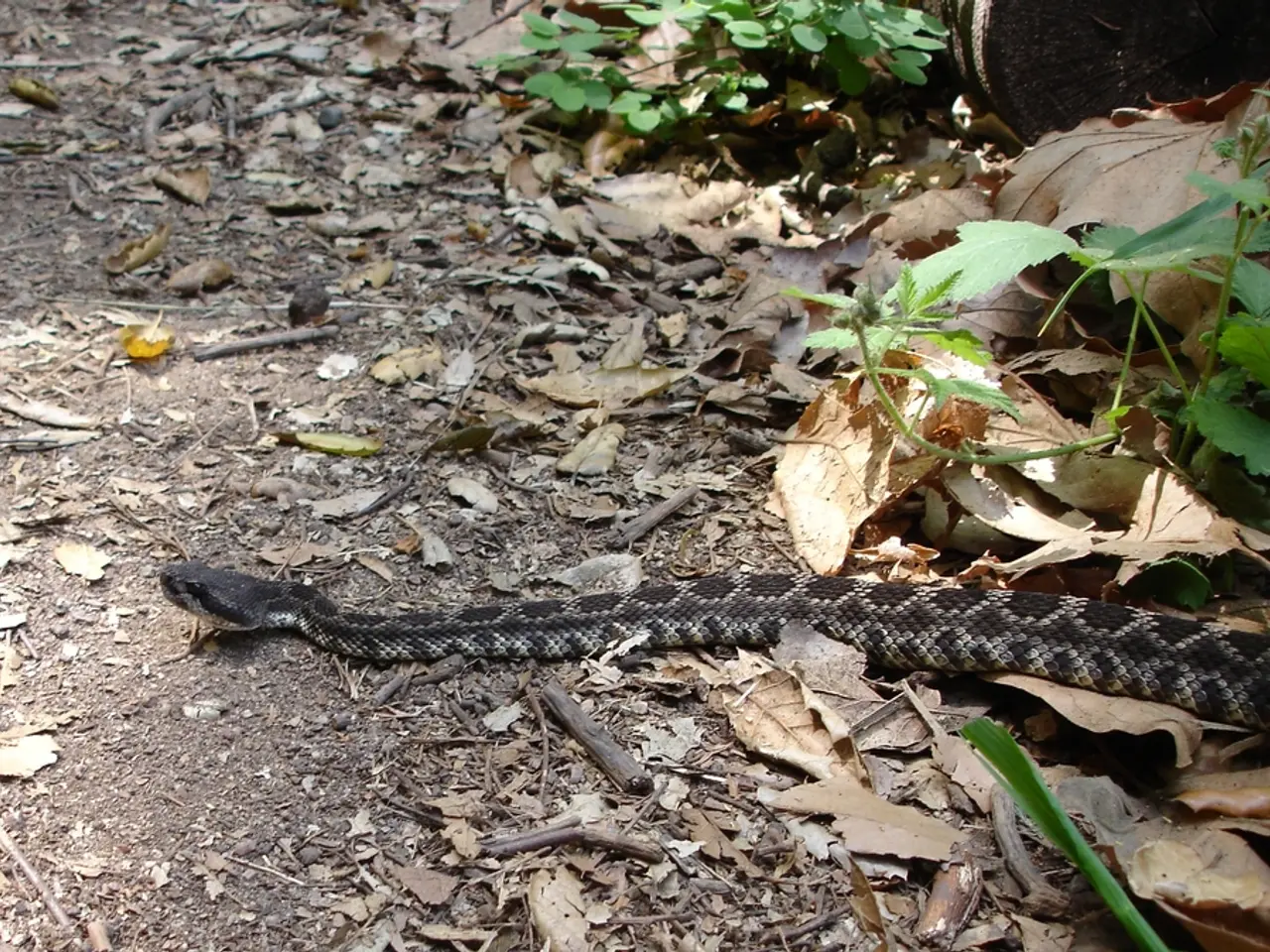Effective and Ineffective Natural Methods for Discouraging Snakes
Natural Snake Repellents: A Guide for Homeowners
Are you looking for a way to keep snakes at bay without relying on harsh chemicals or overpriced gimmicks? Look no further! Here's a roundup of effective, natural snake repellents that you can easily find around your home or kitchen.
Plants
Incorporating certain plants into your garden can serve as a formidable barrier against snakes. Lemongrass, with its sharp citrus scent, is known to repel both snakes and mosquitoes. Marigolds, with their pungent smell and root exudates, deter snakes and their prey (rodents). The spiky leaves of Mother-in-Law’s Tongue (Snake Plant) act as a visual and physical deterrent for snakes. Mugwort (Artemisia) is another option, as it contains compounds that snakes dislike. Additional snake-repellent plants include cinnamon, peppermint, sage, lavender, basil, and oregano.
Kitchen Ingredients and Oils
Garlic and onion (or their crushed pieces) emit a strong sulfurous smell that repels snakes. Clove and cinnamon essential oils, containing eugenol, make for effective, safer alternatives to chemical repellents.
Other Natural Deterrents
Ammonia-soaked rags, placed near suspected entry points, are unappealing to snakes. Vinegar, poured around water sources, may irritate snakes and discourage their approach, though it dissipates quickly and requires frequent reapplication. Eggshells, scattered in gardens, might discourage snakes due to their sharp texture.
Additional Tips
Chickens, pigs, and guinea fowl are natural snake deterrents and can be kept on property to help keep snakes away. Store animal feed in tight-lidded containers to keep it inaccessible to snakes. Reduce the food source of snakes by keeping your yard mowed, garden beds weeded, and compost and feed secured. Keep woodpiles, trash, scrap metal, and debris away from your home to eliminate hiding spots for snakes. Vinegar can be added to ponds or pools to keep snakes from slithering in.
DIY Snake Repellent: Garlic Spray
If you prefer a homemade solution, here's a simple recipe for garlic spray. Place a paste of blended garlic and water in a jar, add oil, and let it sit for an hour before using. Once ready, apply a few drops of the garlic spray solution around doorways, windowsills, crawlspace entrances, and the perimeter of your home. Reapply the garlic spray solution if it rains or every 2-3 weeks for it to remain effective.
By combining these natural repellents with environmental management (removing food sources and standing water), you can significantly reduce the likelihood of snake encounters. Happy gardening, and remember to keep your home and yard snake-free!
[1] Smith, A. (2020). The Ultimate Guide to Natural Snake Repellents. Grow a Greener World. https://growagreenerworld.com/the-ultimate-guide-to-natural-snake-repellents/
[2] Johnson, K. (2019). 10 Natural Snake Repellents to Keep Snakes Away. The Spruce Pets. https://www.thesprucepets.com/10-natural-snake-repellents-1392537
[3] Jones, L. (2021). 15 Natural Snake Repellents to Keep Snakes Away from Your Yard. Gardening Know How. https://www.gardeningknowhow.com/plant-care/pests/pest-control/natural-snake-repellents.htm
[4] Thompson, M. (2018). DIY Garlic Snake Repellent: How to Make a Homemade Snake Repellent. Outdoor Life. https://www.outdoorlife.com/article/outdoor-life/how-make-homemade-snake-repellent-garlic
[5] Miller, R. (2020). 10 Natural Snake Repellents That Actually Work. Home Stratosphere. https://homestratosphere.com/natural-snake-repellents/
Adopt a lifestyle that incorporates foraging for plants known to repel snakes, such as lemongrass, marigolds, Mother-in-Law’s Tongue, or mugwort, and utilize them in your home-and-garden. Additionally, consider utilizing kitchen ingredients like garlic, onion, clove, and cinnamon oil, or DIY solutions like a garlic spray, to foster a snake-free environment.







